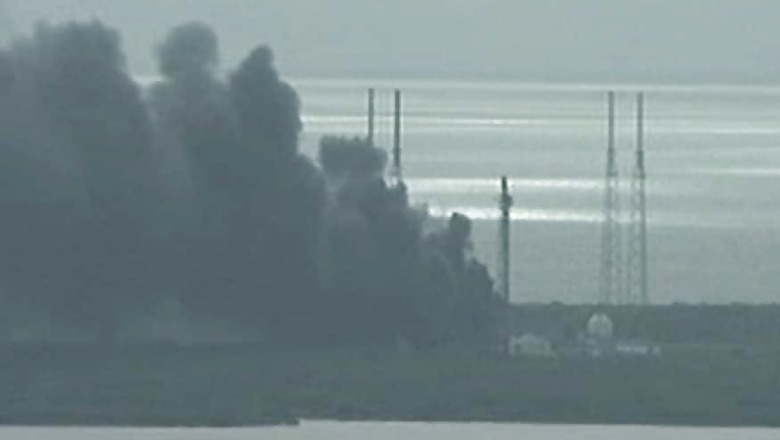
views
An explosion destroyed a Falcon 9 rocket belonging to Elon Musk's SpaceX during routine test firing at Cape Canaveral in Florida on Thursday, shaking buildings miles (km) away and sending a thick plume of black smoke pouring into the air.
SpaceX said in a statement there were no injuries, but that an "anomaly" during the static fire test resulted in the loss of the rocket and the Israeli communications satellite it had been due to carry into space at the weekend.
A spokesman for Cape Canaveral Air Force Station said there was a "significant" explosion just after 9 AM ET (1400 GMT) at Launch Complex 40, which is leased by SpaceX.
"Our emergency management teams are responding right now," said the spokesman, Bryan Purtell.
The explosion tore through the launch site during a test firing of the Falcon 9 rocket ahead of the launch of the communications satellite owned by Spacecom which had been scheduled for before dawn on Saturday.
People in buildings several miles from the facility wrote on social media that they felt the blast, and live television images showed thick black smoke coming from the site.
Local authorities said residents were not at risk.
"There is NO threat to general public from catastrophic abort during static test fire at SpaceX launch pad," the Brevard County Emergency Management Office said in a tweet.
Robin Seemangal, a space reporter with the Observer newspaper, quoted a source at the facility who told him it felt like the building they were in had been hit by lightning.
"We actually thought the building was collapsing, it shook us so bad," Seemangal wrote in a tweet, quoting his source.
It was not immediately known if SpaceX's launch pad was damaged or what the impact would be on the dozens of NASA and commercial satellite missions on its launch schedule.
SpaceX had recovered from a June 2015 launch accident that destroyed a load of cargo headed for the International Space Station.
The pad where SpaceX's rocket was being prepared for launch is one of two operated by the company. Its other launch site is at Vandenberg Air Force Base in California.
Musk founded SpaceX in 2002 with the goal of slashing launch costs to make travel to Mars affordable. The company plans to fly its first unmanned spacecraft to Mars in 2018 and send humans to Mars as early as 2024.




















Comments
0 comment